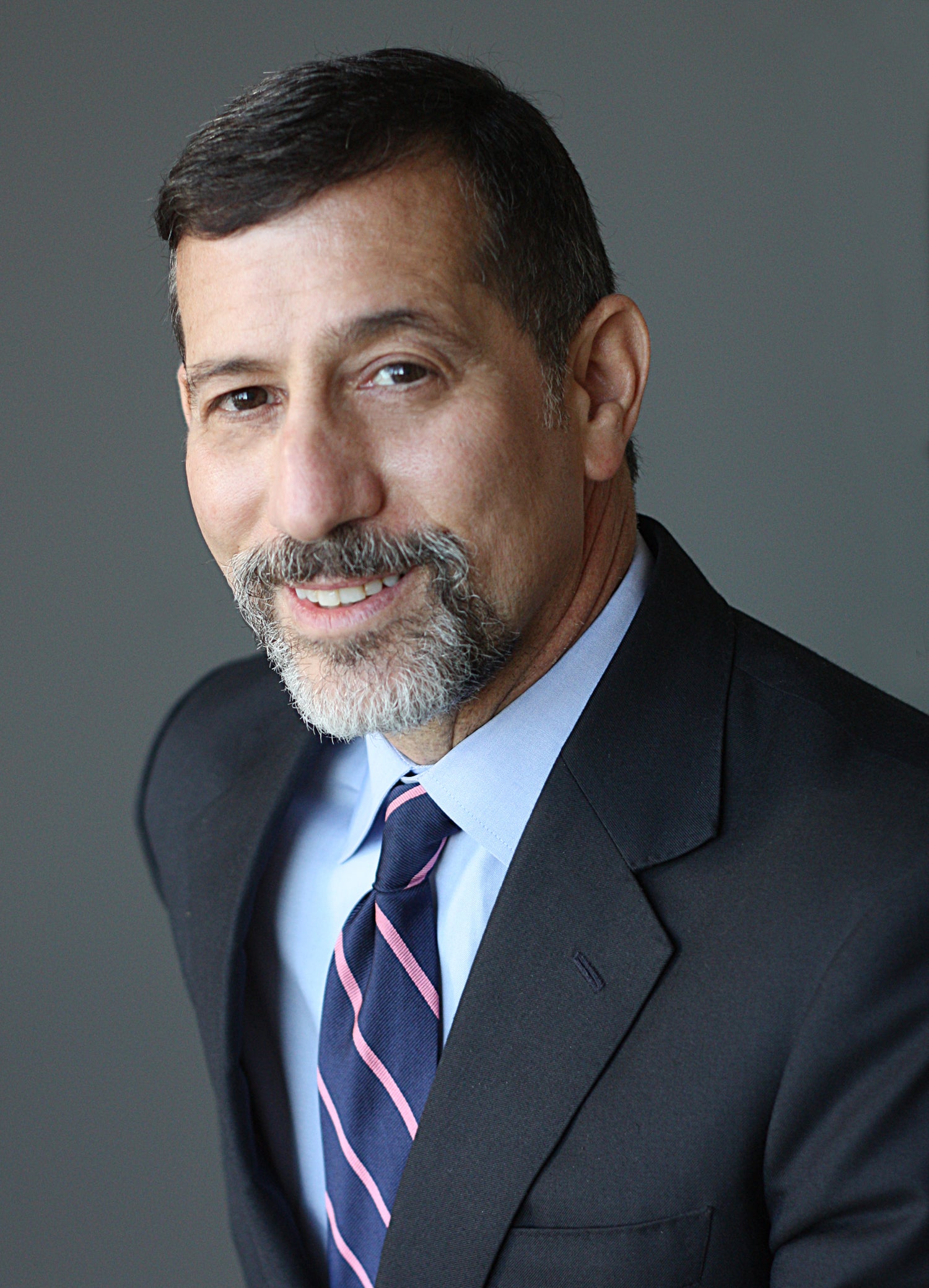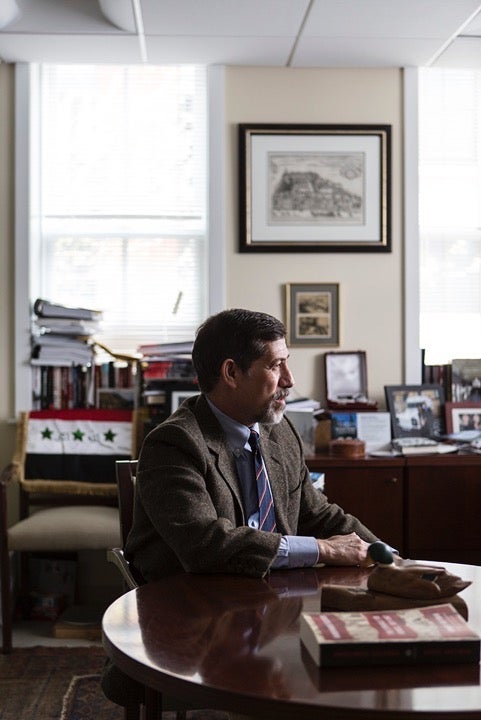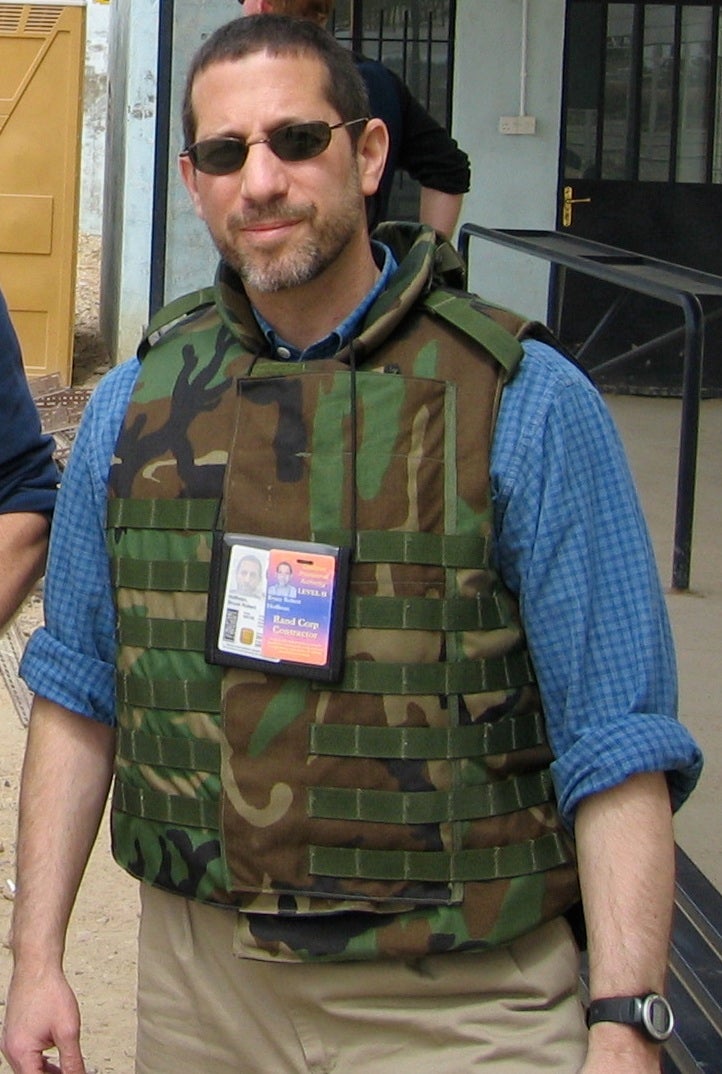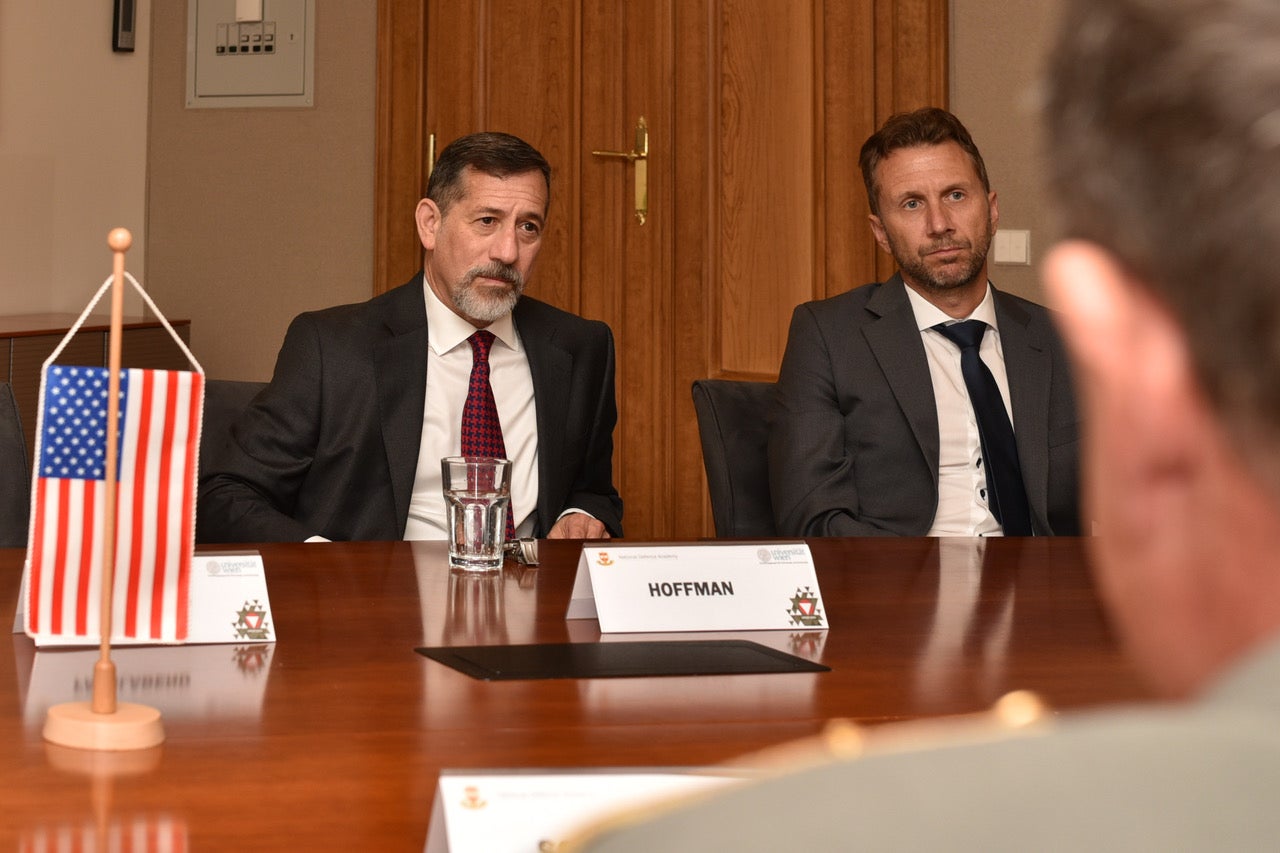
Prof. Bruce Hoffman took the helm at the School of Foreign Service’s Center for Jewish Civilization (CJC) at a historic moment. He began his new role as CJC Director in July, when Georgetown was preparing for a new semester in the midst of the COVID-19 pandemic, protests against anti-Blackness were taking place across the world and concerns continued to grow about the global uptick in anti-Semitic racism and xenophobia.
Responding to the devastating impacts of both the global pandemic and racism was, therefore, at the top of Hoffman’s agenda when he took up his new post, and continues to be a priority as he settles into the position.
“My foremost responsibility is to preserve the CJC’s core values of diversity and inclusiveness,” Hoffman says, “as well as its long-standing commitment to social justice and tikkun olam — repairing the world.”
A longstanding SFS professor, Hoffman will draw on decades of experience as a top expert in terrorism and counterterrorism, and on his former role as director of Georgetown’s Center for Security Studies, as he looks to the future of the CJC in a world that will be shaped by how institutions respond to the pressing issues of our time.

Mentoring Young Scholars
Hoffman’s future-oriented goals for the CJC find expression in a new vision statement for the Center, which outlines its mission “to produce a new generation of students and scholars thoroughly versed in the culture, values, literature, history and contemporary dimensions of Jewish civilization.”
Working with CJC students is one of the most exciting aspects of Hoffman’s new role, he says.
“They are immensely smart, ineluctably dedicated to their studies and always probing and questioning — determined to explore as deeply as possible complex and controversial issues,” he explains.
He continues, ”I experienced this directly when I taught a JCIV course for the first time fall semester 2019. I was completely bowled over by the undergraduates in that class. Accordingly, when Dean Hellman raised the possibility of my succeeding Professor Berlinerblau as director, I was already acquainted with the CJC’s excellent students and readily agreed.”
In his first few months as director, Hoffman has focused on providing additional support for CJC students, which he says is particularly important when the student body cannot join classes and programming in person.
“The CJC has always embodied both cura personalis — care for the entire person — and the active mentoring of our students,” he says. “Since becoming director, among my most important priorities has been to give our students both a wider choice and greater flexibility in course selections.”
Alongside CJC faculty and staff, Hoffman has introduced additional course choices for students for this academic year, adding six new one-credit courses to the curriculum and rolling out a new three-credit course in conjunction with his previous Georgetown home, the Security Studies graduate program within the Center for Security Studies.
The CJC is also now responsible for the university’s Hebrew language instruction.
For Hoffman, offering opportunities for students to explore the ideas and issues that engage them academically is key to the CJC’s mission. He stresses, “At the foundation of everything that the CJC does is our longstanding commitment to scholarly inquiry, an open-minded approach to complex issues and vigorous discussion and debate.”

Countering Intolerance Through the Curriculum
Broadening the CJC curriculum will also enable the Center to further develop its commitment to anti-racism and inclusive scholarship, Hoffman explains.
“Under Professor Jacques Berlinerblau’s decade-and-a-half leadership, the CJC established an impressively solid foundation of expertise in the religion, literature, history, culture, language, music, politics and diplomacy of the Jewish people,” Hoffman says. “My intention is to build on that legacy and further energize the CJC’s efforts in new directions, especially the study and countering of hate and intolerance.”
Hoffman’s own academic work and professional background uniquely informs his new responsibilities.
Some of his previous roles include serving as a commissioner on the Independent Commission to Review the FBI’s Post-9/11 Response to Terrorism and Radicalization, and he was one of the lead authors on the commission’s final report. He also held the Corporate Chair in Counterterrorism and Counterinsurgency at the RAND Corporation.
“As a specialist in the field of terrorism, I have long focused on the violent far-right extremism that has fueled contemporary anti-Semitism, racism, Islamophobia, gender-oriented crimes and xenophobia,” he says.
Part of the CJC’s expanded curriculum plans include the introduction of five new concentrations within the minor: Jewish Culture and Humanities; the Holocaust and Genocide; Jewish Values and America; Israel and the World; and Countering Hate and Intolerance.
As Hoffman points out, these new concentrations further strengthen the CJC’s mission to combat anti-Semitism and all forms of hatred.

Adapting During a Global Pandemic
As Georgetown continues to operate in a virtual environment, one of Hoffman’s first initiatives has been to offer students new, digital ways to connect with the CJC community.
“We are actively connecting students to alumni representing a variety of professional sectors, arranging meetings and talks,” Hoffman says, as the CJC puts extra effort into career guidance and counseling in the midst of an uncertain job market.
Additionally, CJC staff have created a series of digital events where students can learn more about the latest research from the Center’s world-renowned faculty.
In the challenging circumstances presented by the pandemic, Hoffman also hopes to fundraise to continue the Center’s tradition for scholarly innovation and student development.
“The CJC is almost entirely dependent upon the kindness and generosity of our many friends and supporters,” Hoffman says. “I therefore look forward to introducing current donors to the exciting developments in, and my plans for, the CJC and acquainting potential donors with the CJC’s superb students, faculty and staff.”
Looking to the Future
Hoffman and his team are also tentatively looking toward the future of the Center after in person operations have resumed. A further CJC-SSP collaboration will take shape in the summer of 2021 with the inaugural CJC Summer Academy.
“Georgetown undergraduate and graduate students, as well as students from other universities, will then be able to enroll in CJC summer school courses,” Hoffman explains. “These courses will be taught in the evening, so an added advantage is that students enrolled in the CJC Summer Academy will be able to have jobs or internships during normal business hours while continuing their studies in the evening.”
It is hoped that this new program will arrive just in time for students to attend classes on campus. Whatever the future holds, Hoffman is confident that the guiding principles of the CJC and of Georgetown itself will enable the Center to continue to provide students with a meaningful and supportive learning experience. In fact, those principles have underpinned Hoffman’s work ever since he arrived at Georgetown.
He says, “Georgetown University’s immutable strength is its commitment to cura personalis. This is what drew me to the Hilltop in the first place and is precisely the approach I bring to all my classes and now to my role as CJC director.”
He adds, “There will eventually come a time when the pandemic will be over and the CJC community will be able to gather to celebrate in person our friendship and fellowship. Until then, I am eager to serve and support this community virtually and am excited to work with them as we tackle this challenge together.”